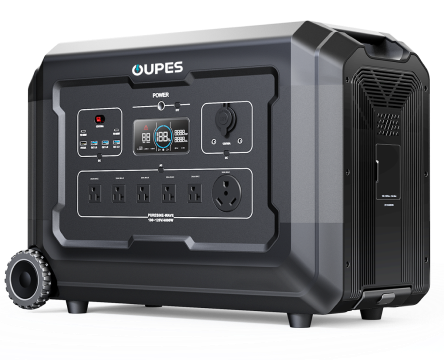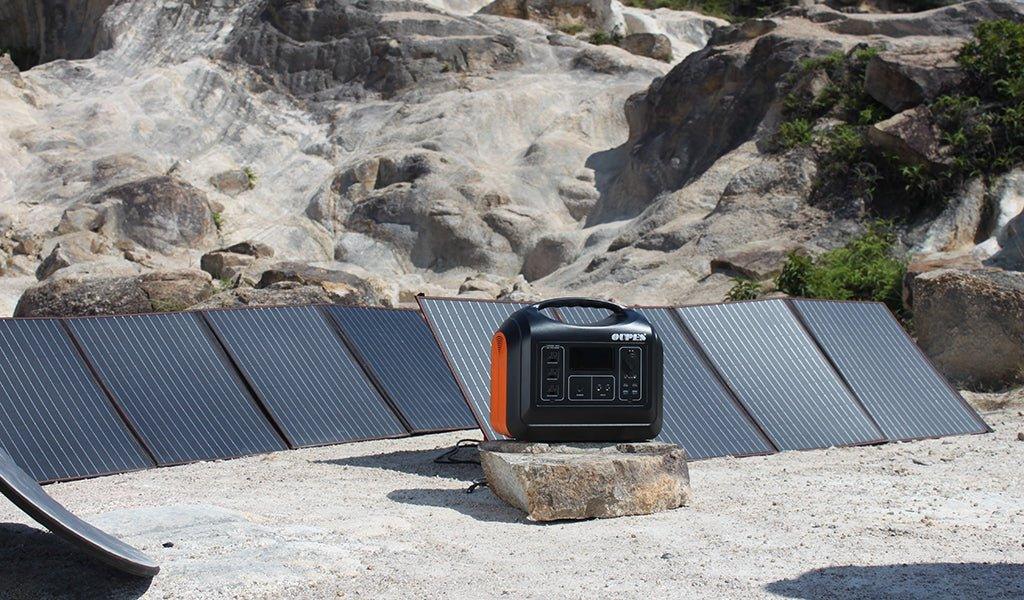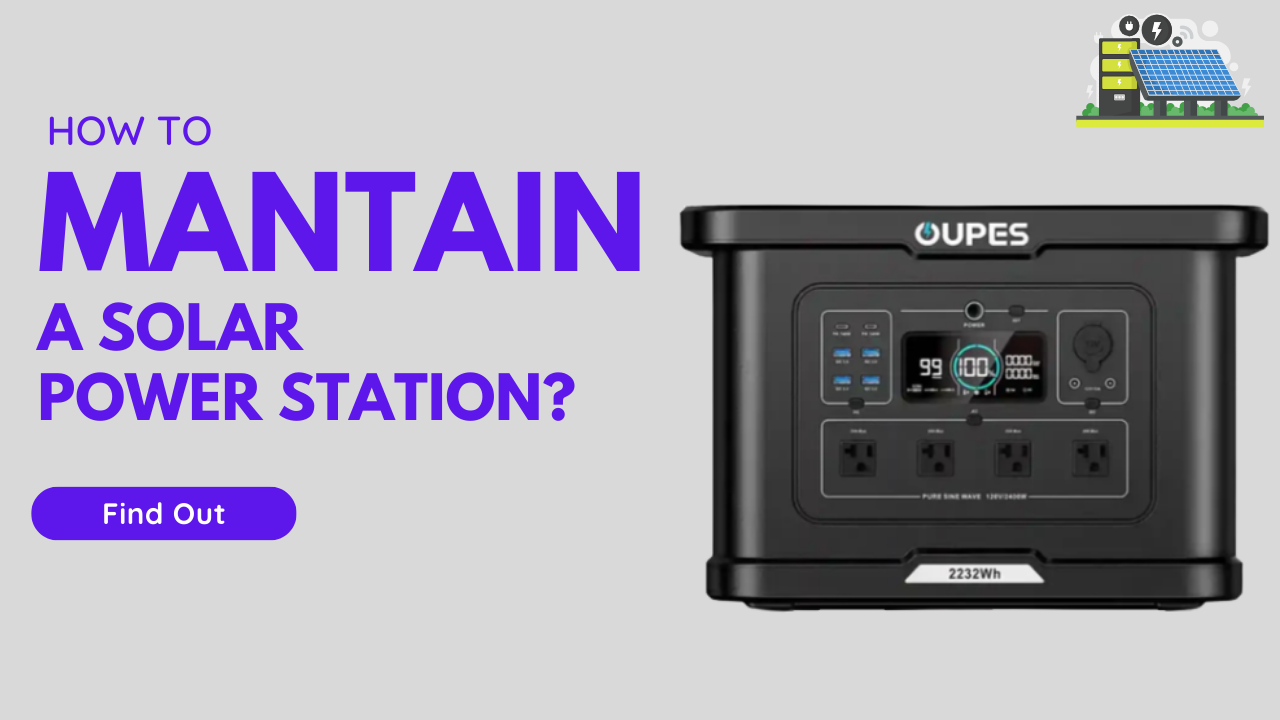Portable solar panels have gained popularity in recent years as they offer a convenient and environmentally friendly way to generate electricity on the go. However, one common concern among potential buyers is whether these panels are waterproof or can work in the rain. In this article, we will discuss the features of an exemplary portable solar panel, the benefits of waterproof portable solar panels, what makes portable solar panels waterproof, and whether they can work in the rain.
Features of a Good Portable Solar Panel
Good portable solar panels should have several features that make them convenient and reliable for outdoor use. These include:
Lightweight and compact design:
The ideal solar panel should be lightweight and compact, so you will not feel tired after carrying it for a long time. It is also important to consider the size of the panel when choosing the best portable solar panel for you.
High conversion rate:
The conversion rate of the solar panel refers to how much electricity it can generate per hour. It is a very important factor for any user who wants to use their solar panels in different locations as well as on different occasions.
The higher this value is, the more power you will be able to generate using your solar panels. For example, the portable solar panels of OUPES are made of monocrystalline silicon cells, and they have a conversion rate as high as 21-22%. This means they can convert light energy into electricity with greater efficiency.
Durable and robust design:
Portable solar panels should be durable enough to withstand even harsh weather conditions without breaking down easily. You should also ensure that they are resistant to water damage so that they do not rust or corrode easily over time.
Benefits of Waterproof Portable Solar Panels
Waterproof portable solar panels offer several benefits, including:
Usable in all weather conditions:
The main benefit of waterproof portable solar panels is that they can be used in all weather conditions. This makes them ideal for camping and hiking trips, as well as for use by people who want to keep their devices powered during outdoor activities.
Marine environment friendly:
Another benefit of waterproof portable solar panels is their ability to withstand the elements when it comes to water-based environments. These panels are compatible with marine environments, which means you don’t have to worry about damaging your device when working in the water or while enjoying a day at the beach.
Increased durability:
Waterproof solar panels are more durable and long-lasting as they can withstand exposure to rain, snow, or humidity.
What Makes Portable Solar Panels Waterproof?
Portable solar panels are made waterproof through a combination of design and materials. The following features make portable solar panels waterproof:
Tempered glass or plastic sheet:
A tempered glass or plastic sheet is used to ensure maximum protection against any kind of impact, including jumping and falling. The glass or plastic sheets are also resistant to scratches, which makes them more durable than other materials.
Waterproof frame and junction box:
The frame is made waterproof to prevent rainwater from entering the junction box, thus preventing short-circuiting in the system. Junction boxes are usually mounted on top of the solar panels so that they can be easily accessed when needed.
Waterproof cables and connectors:
The cables and connectors are typically waterproof or water-resistant, ensuring that water does not penetrate the electrical components.
Can Portable Solar Panels Work In The Rain?
Yes, portable solar panels can work in the rain (it depends). However, their efficiency may be reduced if there is heavy cloud cover or if the rain is too heavy. Portable solar panels with different waterproof levels have different resistance to water. The following is an introduction to the role of different waterproof levels in the application of portable solar panels:
IPX4 - Splash-resistant:
Portable solar panels with an IPX4 rating are splash-resistant. This means that they can withstand water splashing from any direction without damage. While IPX4 is not fully waterproof, it is suitable for use in light rain or humid conditions. However, portable solar panels with this level of water resistance cannot be placed in heavy rain or soaked in water for a long time. While this can damage the battery, it may also leave a safety hazard.
IPX6 - Water-resistant:
Portable solar panels with an IPX6 rating are water-resistant. This means that they can handle more water exposure than IPX4 panels, and can even withstand heavy rain or temporary immersion in water.
IPX7 - Fully waterproof:
Portable solar panels with an IPX7 rating are fully waterproof. This means that they can be submerged in water for a short period without damage. IPX7 panels are ideal for outdoor activities in which the panel may be exposed to the water or even dropped into the water accidentally.
When choosing a portable solar panel, it is important to consider its waterproof level, especially if you plan to use it in wet or rainy conditions. A good portable solar panel should have an IP rating of at least IPX4, protecting it from splashing water from any direction. By choosing a panel with an appropriate waterproof rating, you can ensure that it will continue to work effectively, even in wet conditions.
Are OUPES Portable Solar Panels Waterproof?
OUPES provides two types of portable solar panels: 100W portable solar panels and 240W portable solar panels. You can combine purchases according to your needs. For example, if you want to use it while camping, it is recommended that you choose 960W (that is, four 240W portable solar panels).
If you're at the campsite and it's raining lightly, are OUPES' portable solar panels waterproof? The answer is: yes, OUPES is waterproof! It's IPX4 rated for water resistance, meaning it's protected from splashes of water from all directions. At the same time, it can withstand light rain. However, as mentioned earlier, it's not strong enough to withstand more severe downpours or submersion in water. However, it is a very handy tool when camping:
l Lightweight and portable:
The OUPES portable solar panels are lightweight and they're suitable for all types of camping: car, trailer, tent, and even RV. They have multiple purposes and benefits that make them perfect for camping.
l High conversion rate:
As mentioned above, their conversion rate is as high as 21-22%, which is much higher than similar products (18%) on the market. This means that what others may need an hour to convert, you can complete in a shorter time.
l Compatible and versatile:
OUPES Solar Panel 100W (Rated Voltage 18V/Rated Current 5A/Maximum Output 100W). It is not only suitable for OUPES solar generators 600/1100/1200/1800W but also compatible with other power plants. Here are some tips to help you better use waterproof portable solar panels when camping:
- Check the weather conditions when camping in advance to avoid traveling on rainy days.
- Place your portable solar panel in a location that receives the most sunlight, such as an open field or a sunny patch in the woods. This will maximize the efficiency of the panel and ensure that it can charge your devices as quickly as possible.
- Always keep your portable solar panel clean and dry to ensure maximum efficiency. If you're using an IPX4-rated panel, be sure to wipe off any water or moisture that accumulates on it to prevent damage.
Conclusion:
In conclusion, portable solar panels can be waterproof and can work in the rain. A good portable solar panel should have a durable and robust design, be lightweight and compact, and have a high conversion rate. Waterproof portable solar panels offer several benefits, including the ability to use them in all weather conditions and marine environments.
They are made waterproof through a combination of design and materials, and a good panel should have an IP rating of at least IPX4. While OUPES solar panels are water-resistant, they are not completely waterproof and should not be submerged in water.

































Leave a comment
This site is protected by hCaptcha and the hCaptcha Privacy Policy and Terms of Service apply.